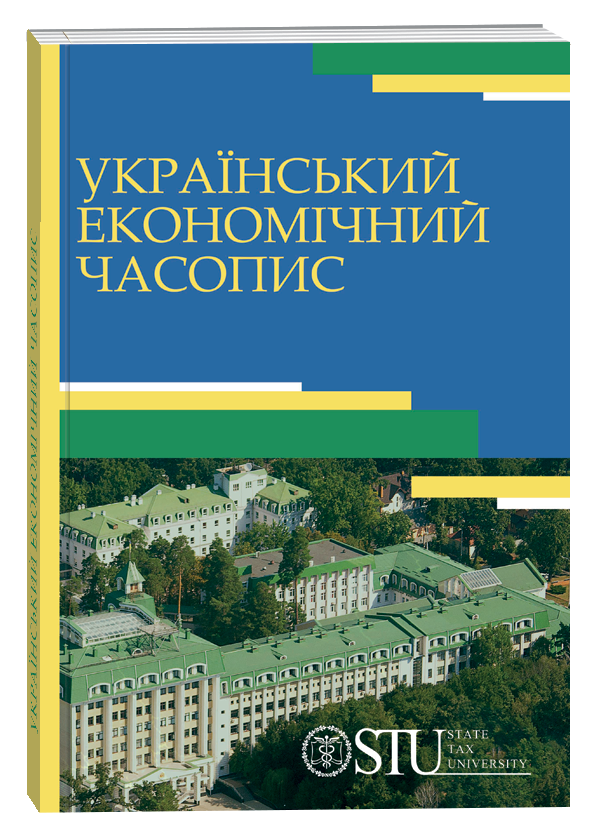MODERN EXAMPLES OF MANAGEMENT OF THE ACTIVITIES OF ENTERPRISES OF THE HOTEL AND RESTAURANT BUSINESS BASED ON DIGITALIZATION
DOI:
https://doi.org/10.32782/2786-8273/2023-3-21Keywords:
digitalization, innovations, hotel and restaurant business enterprises, enterprise management, management efficiencyAbstract
Introduction. The relevance of the topic is due to the fact that the hospitality industry, which is known for its ability to adapt, has adopted a paradigm of rational change management in order to ensure its sustainable development, while using digital transformation to improve the customer experience, optimize asset management and revolutionary approaches in customer relations. The methods used in the research are primary and include the study of sources and observations, analysis and synthesis. Results. The following results were obtained in the article, which consist in the systematization, delineation and substantiated examples of modern management of the activities of enterprises of the hotel and restaurant business based on digitalization, which need to be refined. The necessity of digitalization of the main processes in order to increase the efficiency of the management process is illustrated. The main trends in the development of the industry are shown and it is emphasized that in today's turbulent conditions, the hospitality industry goes far beyond the management of hotel and restaurant business enterprises. It is presented that portable examples of hospitality are gaining popularity in the industry, offering guests a seamless and contactless experience with the help of smartphones. It depicts how contactless technology, virtual experiences and data-driven analytics enable hotels to continue to serve guests while ensuring their safety and well-being. As the industry evolves, digital transformation will be critical to sustainable growth and success. Hotels and resorts that invest in innovative technologies and strategies will gain a competitive advantage, increase guest loyalty and drive revenue growth. Digital transformation allows hotels to offer potential guests virtual tours and immersive experiences, allowing them to explore rooms, amenities before making a booking decision. The results obtained in the article have practical significance, which is the possibility of applying the described modern examples of digitalization at the enterprises of the hotel and restaurant business.
References
Журба І., Несторишен І. Аналіз показників індустрії туризму в Україні та світі: проблеми та перспективи розвитку. Development service industry management. 2023. №. 1. С. 50–55.
Леоненко Н. А. Державне регулювання туристичної сфери: теорія, методологія, практика : монографія. Харків : НУЦЗУ, 2021. 325 с.
Братко О. С., Саламон І. Р. Використання цифрових технологій для просування продукції на міжнародних ринках. Ефективна економіка. 2022. № 5. DOI: https://doi.org/10.32702/2307-2105-2022.5.80
Басюк О. В. Аналіз світового досвіду функціонування готельних ланцюгів. Глобальні та національні проблеми економіки. 2015. № 5. С. 23–26.
Karavasilis G. et al. What generation y in Greece thinks about green hotels. World Journal of Entrepreneurship, Management and Sustainable Development. 2015. Т. 11 № 4. С. 268–280.
Tan L. L. Understanding consumers’ preferences for green hotels–the roles of perceived green benefits and environmental knowledge. Journal of Hospitality and Tourism Insights. 2023. Т. 6. № 3. С. 1309–1327.
Aksöz E. O., Aydın B., Esin Y. Tourists approaches to eco-friendly hotels and determination of green hotel preferences: The case of Eskişehir. Turizam. 2021. Т. 25. № 2. С. 83–95.
Kristanti M., Jokom R. The influence of eco-friendly attitudes on tourists’ intention toward green hotels. Balancing Development and Sustainability in Tourism Destinations: Proceedings of the Tourism Outlook Conference 2015. Springer Singapore, 2017. С. 21–29.
Zhurba I., Nestorishen I. (2023) Analiz pokaznykiv industrii turyzmu v Ukraini ta sviti: problemy ta perspektyvy rozvytku [Analysis of indicators of the tourism industry in Ukraine and the world: problems and development prospects]. Development service industry management, vol. 1, pp. 50–55.
Leonenko N. A. (2021) Derzhavne rehuliuvannia turystychnoi sfery: teoriia, metodolohiia, praktyka: monohrafiia [State regulation of the tourism sphere: theory, methodology, practice: monograph]. Kharkiv: NUTZU, 325 p. (in Ukrainian)
Bratko O. S., Salamon I. R. (2022) Vykorystannia tsyfrovykh tekhnolohii dlia prosuvannia produktsii na mizhnarodnykh rynkakh [Use of digital technologies to promote products on international markets]. Efektyvna ekonomika – Efficient economy, vol. 5. DOI: https://doi.org/10.32702/2307-2105-2022.5.80
Basyuk O. V. (2015) Analiz svitovoho dosvidu funktsionuvannia hotelnykh lantsiuhiv [Analysis of the world experience of hotel chain operation]. Hlobalni ta natsionalni problemy ekonomiky – Global and national economic problems, vol. 5, pp. 23–26.
Karavasilis G. et al. (2015) What generation y in Greece thinks about green hotels. World Journal of Entrepreneurship, Management and Sustainable Development, vol. 11(4), pp. 268–280.
Tan L. L. (2023) Understanding consumers' preferences for green hotels–the roles of perceived green benefits and environmental knowledge. Journal of Hospitality and Tourism Insights, vol. 6(3), pp. 1309–1327.
Aksöz E. O., Aydın B., Esin Y. (2021) Tourists approaches to eco-friendly hotels and determination of green hotel preferences: The case of Eskişehir. Tourism, vol. 25(2), pp. 83–95.
Kristanti M., Jokom R. (2017) The influence of eco-friendly attitudes on tourists' intention toward green hotels. Balancing Development and Sustainability in Tourism Destinations: Proceedings of the Tourism Outlook Conference. Springer Singapore, pp. 21–29.



